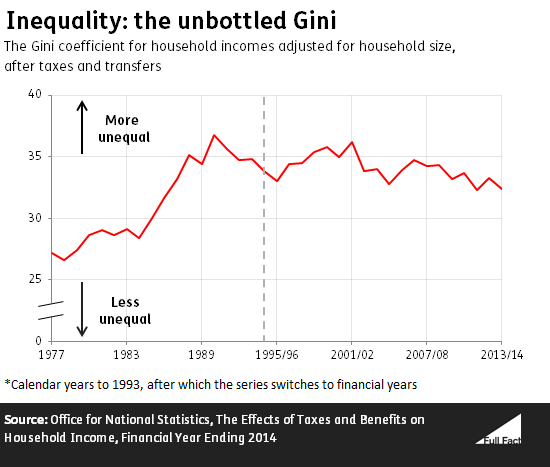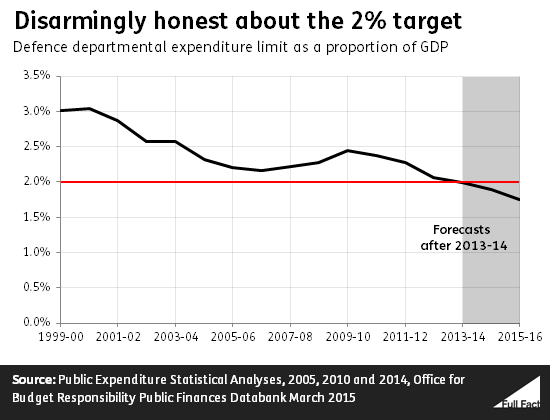Poverty, inequality and airport expansion: factchecking Prime Minister's Questions
"under Labour the number of working age people in in-work poverty rose by around 20%, that was at the same time that welfare spending on people in work went up from from £6 billion to £28 billion"—David Cameron
It's not clear what figures the government is using for these comparisons, so we've asked the Number 10 Press Office for a source and will post analysis when we have it.
"under the last Government, inequality and child poverty fell"—David Cameron
This is only correct using the measure of 'relative poverty' that the government today described as 'deeply flawed'. 'Absolute poverty' was estimated to have risen under the Coalition, though the change wasn't significant.
The proportion of children in households with a relative low income fell from 20% to 17% from 2009/10 to 2013/14.
If we look at 'absolute poverty' (the proportion of children in households earning less than a fixed level of income, after adjusting for inflation), then the estimated proportion of children rose from 18% to 19%.
A common measure of inequality is the Gini coefficient. It did show a slight fall under the last government but, as the graph shows, the measure has changed very little for over a decade so it's difficult to draw conclusions from this.
"I'm very clear about the legal position that if we say anything now, before studying the [Airport Commission] report that you could endanger whatever decision is made...
"...If you make some precipitate decision or rule out one particular option, you will actually make the decision you would like to make impossible to achieve because of judicial review."—David Cameron
There isn't a definitive legal barrier to the Prime Minister expressing an opinion on a third runway at Heathrow, but it's at least arguable that a court challenge could come into play.
Previous cases have established that statements made to Parliament, expressing a policy decision of the government, can be examined by a judge if they don't follow certain legal principles. One of these actually concerned the third runway: in 2009, local councils, environmental groups and local residents went to the High Court to challenge the Labour government's decision, as announced to MPs, to build at Heathrow.
A big infrastructure project like this one might also be challenged much further down the line. It can be authorised by an Act of Parliament or through a dedicated planning process. Either process can involve public consultation, and inadequate consultation is one reason that a judicial review can succeed.
Mr. Cameron may have been worried that announcing now a definitive decision that the government intends to build at Heathrow would put the integrity of future consultation at risk; or he might have been referring to the general duty not to make "unreasonable" or "irrational" decisions.
"we have in every year met that 2% [NATO defence spending] target"—David Cameron
That's correct—defence spending has been hovering roughly between 2% and 3% of GDP since 1998/99 right up to 2013/14, according to Treasury figures.
Published plans for spending over the coming years indicate that—on this measure—we're going to miss the target in 2015/16.
That said, it's "extremely difficult" to forecast how this will change in the coming years. That's because money sometimes has to be found at short notice in order to fight wars or otherwise deploy troops. GDP forecasts are also subject to revision.

